Ralph Lauren supports Israel through a significant long-term global licensing agreement with Delta Galil for women’s intimates and sleepwear. This strategic partnership taps into the booming women’s intimates market, now valued at $250 billion globally. Delta Galil, Israel’s largest manufacturer and marketer of textiles, has been expanding its licensing portfolio aggressively, recently reporting quarterly sales exceeding $501 million.
Established in 1975, Delta Galil has become a global powerhouse in the premium innerwear industry. The company holds licenses for prestigious brands including Calvin Klein, Tommy Hilfiger, and Columbia. However, Delta Galil’s business practices have drawn attention after the company was included in the 2020 UN list of companies doing business in illegal settlements. This partnership comes at a time when Ralph Lauren is actively working to grow its women’s business and attract younger customers.
How Ralph Lauren Supports Israel Amid Deal with Delta Galil
The licensing agreement between Ralph Lauren and Delta Galil represents a significant strategic alignment with Israeli business interests. This partnership marks a major expansion for both companies, extending beyond mere financial collaboration into the realm of geopolitical positioning.
Details of the licensing agreement
The partnership between these two industry giants involves a comprehensive long-term global licensing arrangement that goes far beyond a simple manufacturing contract. Under this agreement, Delta Galil gains exclusive rights to design, produce, and distribute Ralph Lauren’s women’s intimates and sleepwear collections worldwide. This collaboration allows Ralph Lauren to tap into Delta Galil’s specialized expertise in the intimate apparel sector while maintaining creative control over brand aesthetics and quality standards.
Furthermore, the partnership strategically positions Ralph Lauren in the rapidly expanding women’s intimates market. Both companies anticipate substantial revenue growth from this arrangement, with projections indicating a significant boost to their respective bottom lines. Delta Galil’s proven track record with other luxury brands made them an attractive partner despite growing concerns about their business operations.
Delta Galil’s presence in Israeli settlements
Delta Galil maintains substantial operations within contested territories. The company operates factories and warehouses in the occupied West Bank, areas that are subject to ongoing international disputes. Their manufacturing facilities in these regions employ hundreds of workers and contribute significantly to the local economy.
Additionally, Delta Galil appears on the United Nations’ 2020 list of companies conducting business in territories designated as illegal settlements under international law. This designation has raised questions about corporate responsibility and ethical business practices in contested regions. Despite these controversies, the company continues to expand its presence in these areas.
Public perception of Ralph Lauren’s alignment
Ralph Lauren’s decision to partner with Delta Galil has sparked varied reactions among consumers and advocacy groups. For supporters, this business relationship represents a commitment to Israeli economic development and stability in the region. The partnership signals Ralph Lauren’s confidence in Israel’s business environment and manufacturing capabilities.
Conversely, critics view the deal as a tacit endorsement of controversial settlement activities. Several consumer advocacy groups have expressed concerns about the ethical implications of conducting business with companies operating in disputed territories. This partnership has consequently placed Ralph Lauren at the center of a broader debate about corporate responsibility in geopolitically sensitive regions.
Delta Galil’s Deep Ties to Controversial Territories
Delta Galil’s operations extend deeply into contested territories, raising questions about corporate responsibility in geopolitically sensitive regions. The company’s physical and economic footprint in these areas has drawn increasing international scrutiny.
Factories and warehouses in the occupied West Bank
Beyond merely doing business in disputed areas, Delta Galil maintains substantial manufacturing infrastructure throughout the occupied West Bank. The company operates several production facilities in these territories, employing hundreds of local workers. Notably, these operations contribute significantly to local economies while simultaneously benefiting from reduced operational costs. The company’s manufacturing presence in these areas has expanded steadily over recent years, despite mounting international pressure against business activities in contested regions.
Subsidiaries operating in East Jerusalem
Delta Galil also maintains a network of subsidiaries operating in East Jerusalem, another territory with contested status under international law. These business units primarily focus on distribution and retail operations, essentially extending the company’s commercial reach throughout all disputed territories. The East Jerusalem operations serve as critical logistics hubs connecting Delta Galil’s manufacturing capacity with markets across the Middle East and beyond.
Inclusion in the UN’s list of companies in illegal settlements
In fact, Delta Galil’s territorial operations led to its inclusion in the February 2020 United Nations list of companies conducting business in settlements deemed illegal under international law. This designation places Delta Galil among 112 companies identified as operating in violation of established human rights standards. The UN report specifically cites companies whose activities “raised particular human rights concerns” in relation to settlement activities. This formal recognition has intensified the debate around Ralph Lauren’s decision to partner with Delta Galil.
L’Oréal’s Role in Normalizing Business in Occupied Territories
Like Ralph Lauren, cosmetics giant L’Oréal has established a substantial business presence in Israel, further normalizing corporate operations in disputed regions.
L’Oréal’s expansion in Israel
Beyond mere market presence, L’Oréal has invested heavily in Israeli beauty technology and retail networks. The company operates multiple flagship stores throughout Israel, including locations in territories whose status remains contested under international law. Moreover, L’Oréal has pursued active partnerships with Israeli beauty startups and technology firms, positioning itself as a major player in the region’s beauty industry ecosystem.
Criticism from human rights groups
L’Oréal’s operations have faced mounting scrutiny from international advocacy organizations. Similar to Delta Galil, the cosmetics corporation has been accused of indirectly supporting territorial occupation through its business activities. Several human rights groups have urged L’Oréal to reconsider its operational footprint, pointing to potential violations of international humanitarian standards. These criticisms generally focus on how corporate presence legitimizes controversial territorial claims.
Brand positioning vs. ethical concerns
L’Oréal’s marketing emphasizes inclusivity and social responsibility, creating tension with its business decisions in disputed territories. This disconnect between ethical messaging and operational choices has prompted questions about corporate authenticity. Ultimately, the company faces the challenging balancing act of maintaining brand appeal while navigating complex geopolitical issues. This pattern mirrors Ralph Lauren’s situation, as both luxury brands must reconcile their public image with controversial business partnerships that signal implicit political positions.
Consumer Backlash and the Rise of Ethical Fashion Movements
Amid growing awareness of business ties to occupied territories, consumer activism against companies supporting Israel has gained unprecedented momentum. The Boycott, Divestment and Sanctions (BDS) movement has officially partnered with grassroots initiatives to amplify global boycott campaigns for Palestinian rights. Facing this pressure, Israel has allocated $150 million for a global propaganda campaign aimed at countering BDS and controlling media narratives.
BDS movement and boycott campaigns
The Palestinian BDS National Committee represents the largest coalition in Palestinian society, targeting companies complicit in Israel’s occupation. Their strategic approach focuses on carefully selected companies for maximum impact, successfully forcing brands like G4S, Veolia, Orange, Puma, and Pillsbury to end their complicity. Recently, the BDS movement officially endorsed boycotts against Zara and Reebok.
Apps like Boycat and No Thanks
Technology now enables consumers to make informed purchasing decisions. Boycat helps users identify and avoid companies supporting the occupation through barcode scanning. Meanwhile, “No Thanks,” created by Palestinian software engineer Ahmed Bashbash, gained over 100,000 downloads in its first month. Within four months, it reached one million downloads despite being temporarily removed from Google’s store.
How consumers are holding brands accountable
Beyond individual choices, organized boycotts have demonstrated real impact. Gen Z is currently driving a massive boycott of “Made in Israel” products—and it’s working. According to research, 60% of consumers worldwide choose brands that align with their politics.
Impact on brand reputation and sales
The financial consequences have proven substantial. McDonald’s announced it will buy back all Israeli restaurants after consumer boycotts harmed sales. Similarly, Starbucks faced four consecutive quarters of declining sales with a 23% drop in profits. Ultimately, even when boycotts have minimal immediate financial impact, they can negatively affect long-term reputation, employee attraction, and investor interest.
We’ve covered multiple fashion labels with ties to Israel. To view the full set of case studies, visit our main guide: Fashion Brands That Support Israel.
Final Thoughts
Corporate involvement in conflict zones extends beyond business decisions into ethical territory. Businesses operating in contested regions “are not neutral actors; their presence is not without impact”. Even when companies like Ralph Lauren or L’Oréal don’t explicitly take sides in conflicts, their operations inevitably influence regional dynamics.
Given that corporate human rights violations in armed conflicts aren’t new phenomena, businesses face intensifying pressure to acknowledge their expanded responsibilities. The risks for brands supporting operations in disputed territories are substantial—encompassing both financial consequences and damaged reputations.
Above all, companies must undertake continuous, heightened human rights due diligence per the UN Guiding Principles on Business and Human Rights. Ethical scrutiny now extends to compliance with international humanitarian law, as demonstrated by ongoing criminal trials against executives accused of complicity in war crimes.
Ultimately, the changing regulatory landscape compounds these concerns. The forthcoming EU Corporate Sustainability Due Diligence Directive represents a pivotal shift in corporate accountability. Regardless of their intentions, Ralph Lauren and other fashion brands connected to Israeli businesses in contested territories may increasingly find themselves under legal and consumer scrutiny.
As one industry expert noted: “Responsible private sector investment is crucial to fostering inclusive economic development,”—yet this responsibility demands acknowledgment of human rights throughout all business activities.
FAQs
1. Does Ralph Lauren support Israel?
Ralph Lauren does not state a political position, but the company’s long-term global licensing deal with Israel-based manufacturer Delta Galil links the brand commercially to Israeli business interests—an arrangement critics describe as Ralph Lauren supports Israel in practical terms.
2. What is the Ralph Lauren–Delta Galil deal?
The agreement is a long-term global licensing partnership giving Delta Galil rights to design, produce, and distribute Ralph Lauren women’s intimates and sleepwear worldwide, expanding Ralph Lauren’s footprint in the lucrative innerwear market.
3. Who is Delta Galil?
Delta Galil is an Israeli textile and apparel manufacturer with licenses for major brands (Calvin Klein, Tommy Hilfiger, etc.). The company operates factories and distribution centers, including facilities in contested areas of the West Bank, and reported quarterly sales in the hundreds of millions.
4. Why is Delta Galil controversial?
Delta Galil was included on the UN’s 2020 list of companies doing business in Israeli settlements—territories considered illegal under international law, raising questions about corporate responsibility and human-rights implications.
5. Does Delta Galil operate in Israeli settlements?
Yes. Reporting shows Delta Galil has manufacturing facilities and operations within areas of the occupied West Bank and East Jerusalem locations that drew the UN designation and activist scrutiny.
6. Will Ralph Lauren face boycotts because of this deal?
Potentially. Partnerships with companies operating in contested territories often trigger consumer campaigns and calls for boycotts (for example, from BDS supporters), especially when brands appear to benefit from settlement-related activities.
7. What is the UN list, and why does it matter?
The United Nations produced a list of companies with business activities in Israeli settlements; inclusion signals heightened human-rights concerns and can invite reputational, legal, and investor scrutiny.
8. How does this affect Ralph Lauren’s brand reputation?
Associations with companies on the UN list risk reputational damage among ethically-minded consumers and investors. The deal may provoke criticism that Ralph Lauren is complicit, directly or indirectly, in economically normalizing disputed territories.
9. Are there legal risks for brands doing business with companies operating in settlements?
While legal exposure varies by jurisdiction, operating in or profiting from activities in occupied territories can increase regulatory, litigation, or compliance risks—especially as international and regional rules evolve toward greater corporate due diligence.
10. How are consumers responding to such partnerships?
Many consumers, particularly younger shoppers, favor ethical sourcing. Activist campaigns, apps that scan products, and social-media boycotts have all grown in influence, pushing some brands to rethink supplier choices.
11. Could Ralph Lauren end the partnership?
Yes, companies can renegotiate or terminate licensing deals. But such decisions involve complex commercial, contractual, and strategic considerations, not solely public pressure.
12. What can consumers do if they’re concerned?
Options include avoiding products made by implicated suppliers, supporting ethical brands, donating to humanitarian organizations, and using petitions or social campaigns to push for corporate accountability.
13. Is Ralph Lauren the only brand linked to Delta Galil?
No. Delta Galil holds manufacturing and licensing relationships with multiple international brands, which similarly face scrutiny when their supply chains include contested territories.
14. Where can I read more about companies linked to Israeli settlements?
See UN reports on business activities in settlements, watchdog publications, our coverage, and investigative journalism that tracks corporate operations and supply chains in the occupied territories.

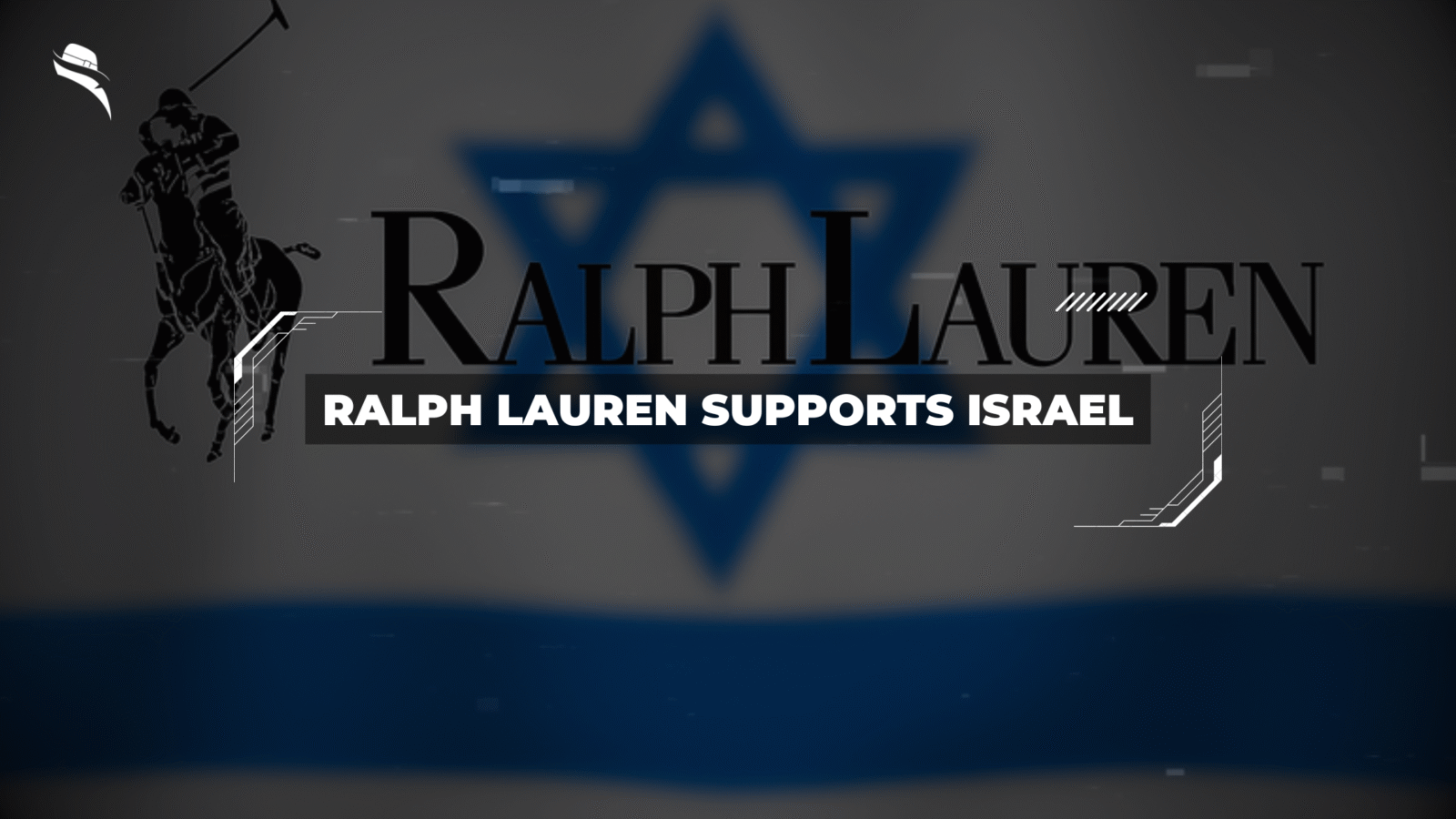
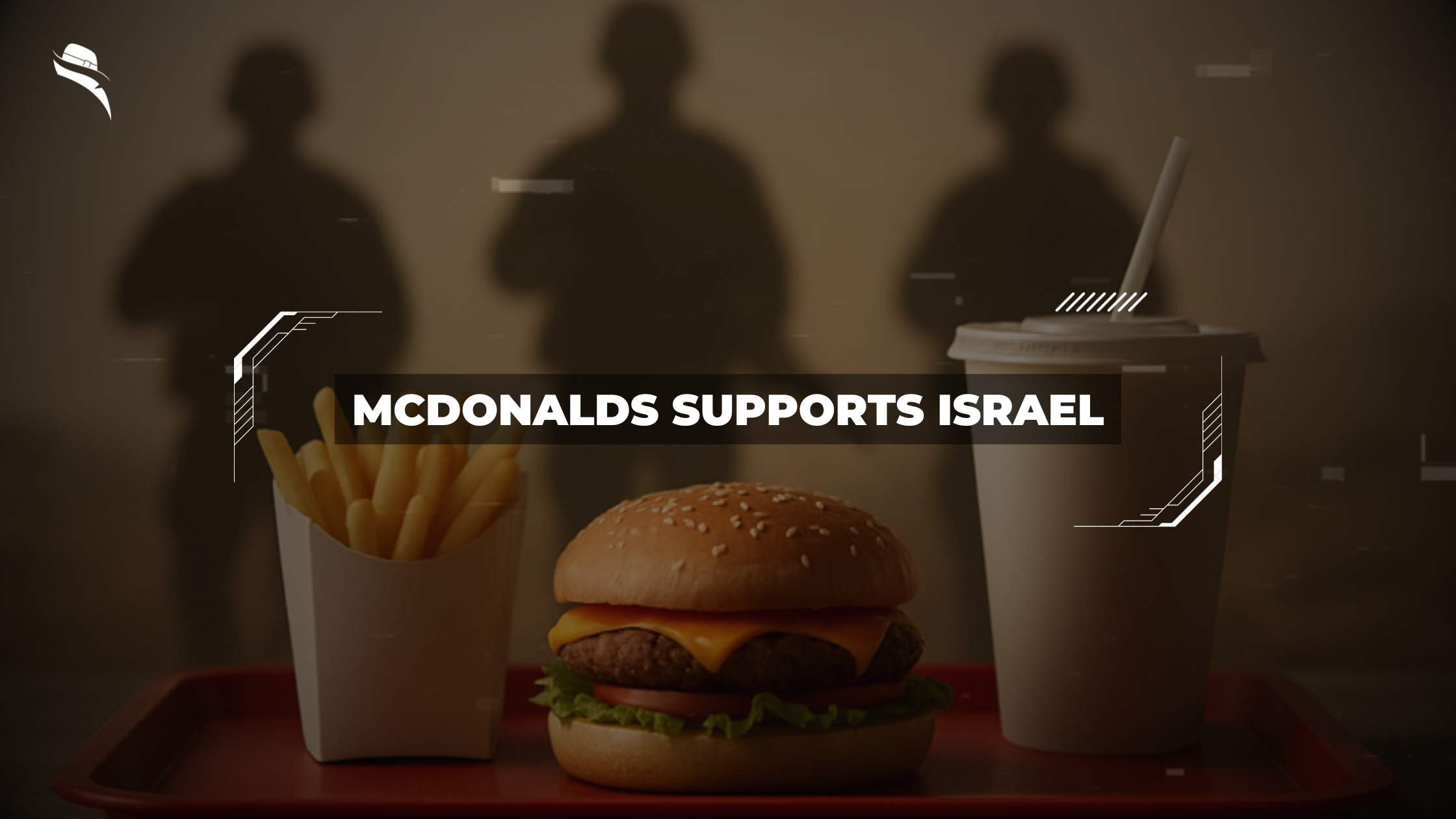
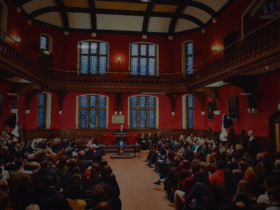
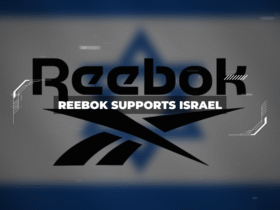
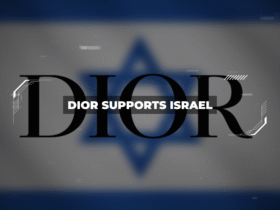
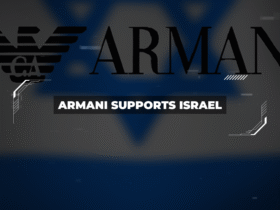
Leave a Reply